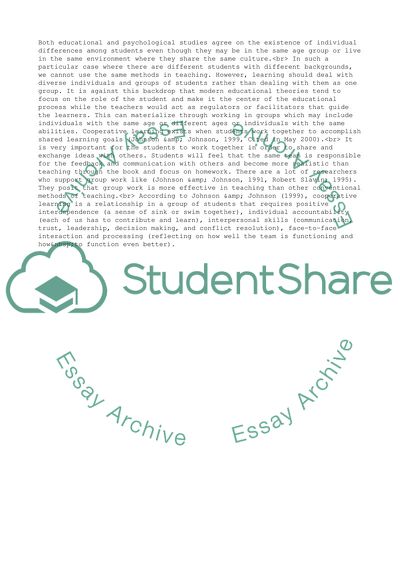Cite this document
(The Influence, The Importance of Time Management and Cooperative Research Proposal, n.d.)
The Influence, The Importance of Time Management and Cooperative Research Proposal. Retrieved from https://studentshare.org/management/1722735-the-influence-the-importance-of-time-management-and-cooperative-learning-learning-through-group-pair-work-in-classrooms
The Influence, The Importance of Time Management and Cooperative Research Proposal. Retrieved from https://studentshare.org/management/1722735-the-influence-the-importance-of-time-management-and-cooperative-learning-learning-through-group-pair-work-in-classrooms
(The Influence, The Importance of Time Management and Cooperative Research Proposal)
The Influence, The Importance of Time Management and Cooperative Research Proposal. https://studentshare.org/management/1722735-the-influence-the-importance-of-time-management-and-cooperative-learning-learning-through-group-pair-work-in-classrooms.
The Influence, The Importance of Time Management and Cooperative Research Proposal. https://studentshare.org/management/1722735-the-influence-the-importance-of-time-management-and-cooperative-learning-learning-through-group-pair-work-in-classrooms.
“The Influence, The Importance of Time Management and Cooperative Research Proposal”, n.d. https://studentshare.org/management/1722735-the-influence-the-importance-of-time-management-and-cooperative-learning-learning-through-group-pair-work-in-classrooms.


